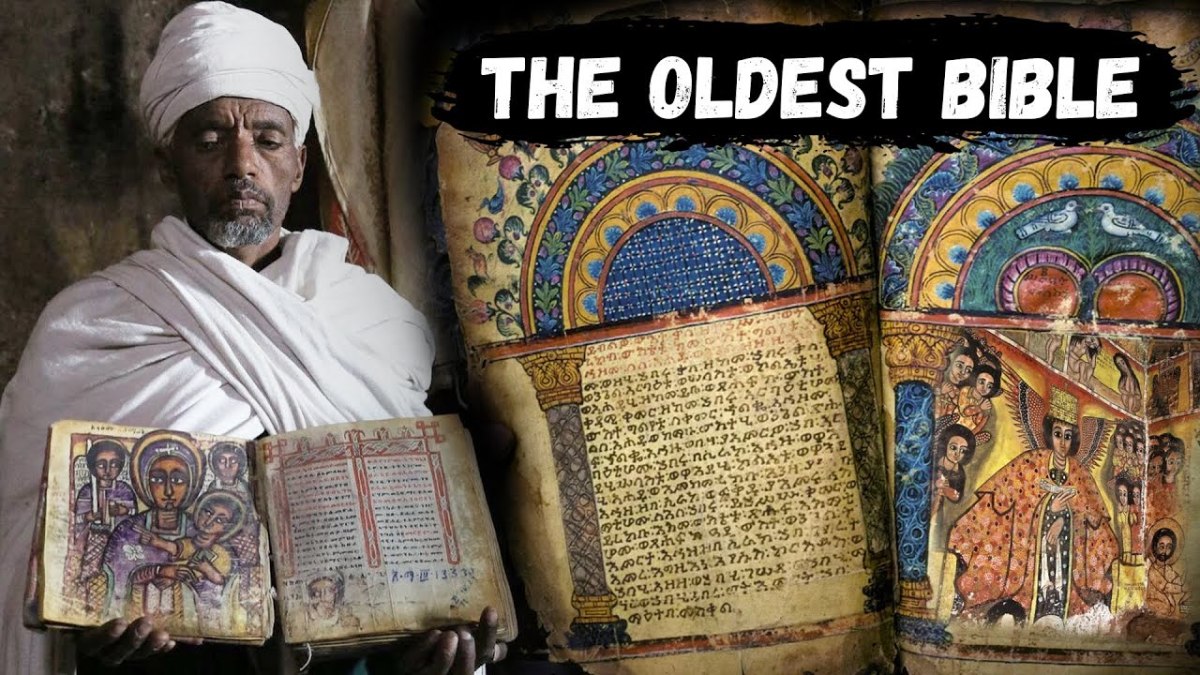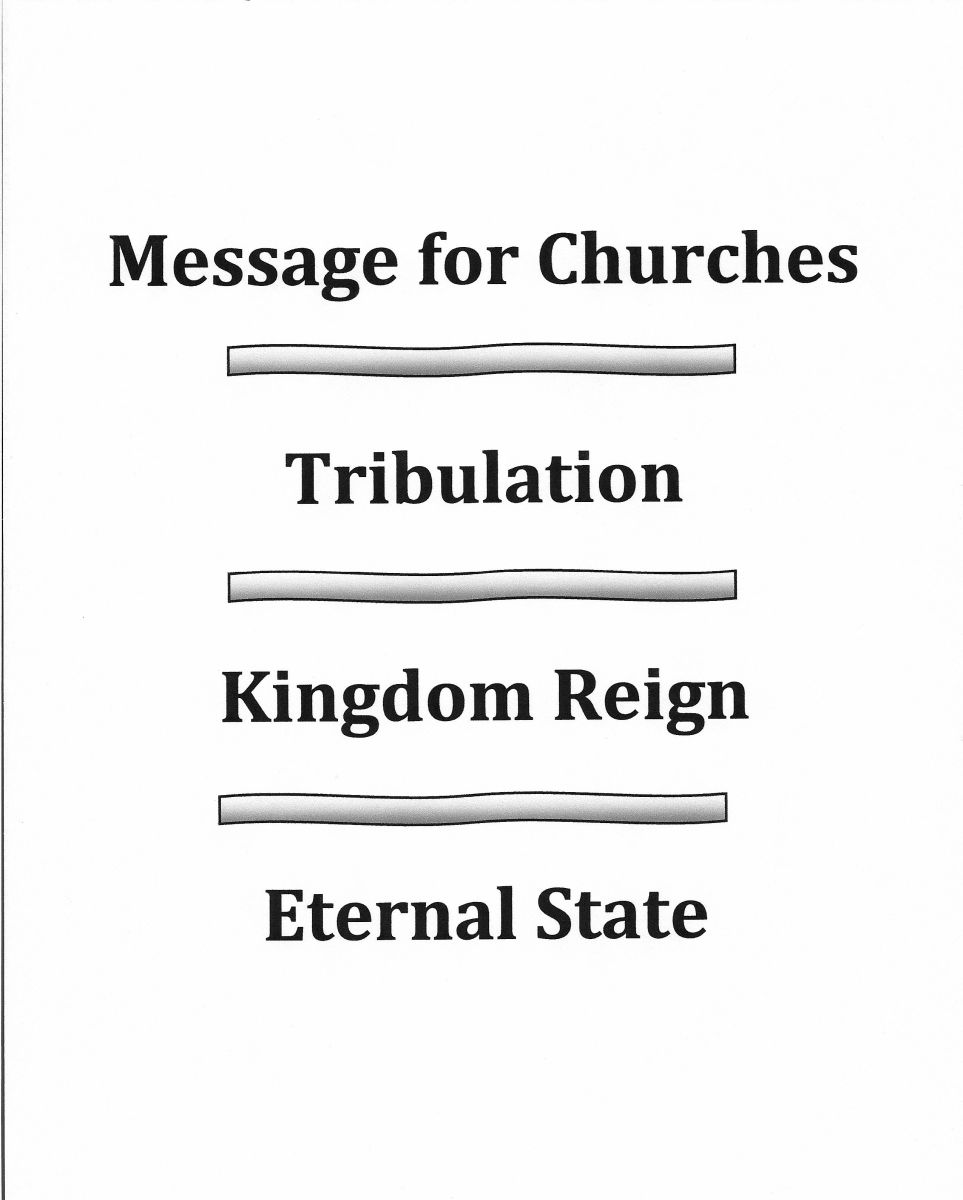Bible: What Does 2 Timothy 3-4 Teach Us About the Last Days?
The Apostle Paul
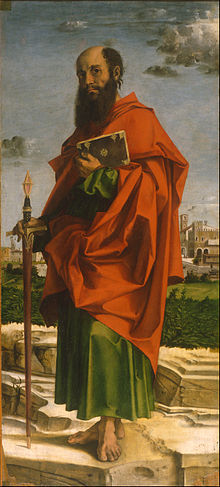
II Timothy 3
The apostle desires Timothy to know that, as the day of the Rapture approaches (“in the last days”), the moral conditions of human society will progressively deteriorate (“times of stress will come”) [v. 1; cf. 1 Tim. 4:1-5].
Society will break down in the following ways:
(1) People will become increasingly narcissistic;
(2) They will idolize wealth;
(3) They will exalt themselves and their possessions, thinking themselves far superior to all others;
(4) They will speak disrespectfully of God and sanctity;
(5) They will reject their parents’ counsel and commands;
(6) They will purposely neglect to thank God for their lives and for what He has given them;
(7) They will have nothing to do with the things set apart to God (v. 2);
(8) They will not care for others;
(9) They will not be able to reconcile with others;
(10) They will purposely defame others;
(11) They will be incapable of controlling themselves in every way;
(12) They will be violent and cruel toward other life;
(13) They will hate the good things that people do (v. 3);
(14) They will be unfaithful to their country (and in other general ways);
(15) They will be impulsive;
(16) They will elevate their importance over others;
(17) They will seek sensuality at all costs, and will have no place for the worship of God (v. 4);
(18) They will hold to a religion for appearance’s sake, not because it empowers them to subdue their sinfulness (v. 5a).
Paul implores his spiritual son to avoid people who espouse such beliefs and behave in these ways (v. 5b).
Two Egyptian Magicians
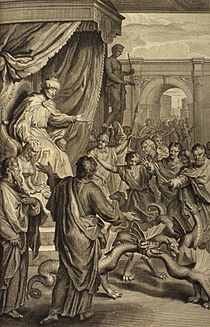
Egyptian Charlatans
view quiz statisticsThe members of the religious group he described last show their special expertise at controlling the decision-making abilities of impulsive, sin-laden women who are prone to changing their minds (v. 6).
Comment: Again, Paul must have specific women in mind; he is not categorizing the whole sex as gullible, sinful, and impulsive.
These teachers constantly study new subjects, but they will never arrive at the truth (v. 7).
[The language mechanics may also attribute this characteristic to the women.]
Paul compares them to certain Egyptian adversaries of Moses before the Exodus—Jannes and Jambres—who, according to Jewish and pagan tradition, performed counterfeit miracles in Pharaoh’s court.
As Yahweh proved them hoaxes in Moses’ day, so He will show the “men of corrupt minds, disapproved concerning the faith” in Paul’s day to be manifest fools as well (vv. 8-9).
In contrast to the false teachers, Paul references Timothy’s diligence in learning good qualities from every aspect of the apostle’s life.
Besides his instruction and conduct, he emphasizes the trials he endured in various cities in Asia Minor (“longsuffering . . . perseverance, persecutions, afflictions”).
The apostle’s life should teach Timothy that if he wants to live godly, he should expect the world to mistreat him.
In addition, it should show him how Christians should depend upon the Lord through it all (vv. 10-12).
Paul asserts that the state of affairs among unbelievers will continually worsen; they will habitually deceive each other, and they themselves will be deceived (v. 13).
Timothy and Grandmother
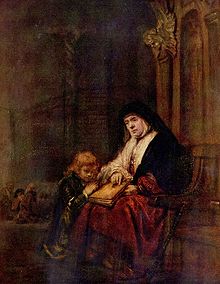
God-Breathed Scriptures
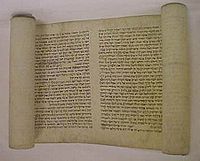
The God-Breathed Older and New Testament
On the other hand, he urges Timothy to maintain a lifestyle that reflects a deep commitment to the teachings of the Holy Scriptures--lessons he learned not only from Paul, but also from his mother and grandmother (vv. 14-15a; cf. 2 Tim. 1:5).
The Holy Spirit, the Author of these God-breathed writings, can use the Older (and New) Testament to instruct human beings in godly wisdom leading to the obtaining of eternal salvation through faith in Christ (v. 15b; cf. John 14:26; 2 Pet. 1:20-21).
Paul avers that every Scripture possesses this divine quality of having originated from the mouth of God; properly applied, people can greatly profit from its theological and moral teachings.
Not only can ordinary believers learn how to live righteously, but the “man of God” can also mature spiritually and become able to accomplish “every good work” (vv. 16-17).
Note: Ryrie provides his rightly famous definition of inspiration and his equally important explanation of the extent of inspiration (New Testament Study Bible, 389).
Proclaim the Gospel
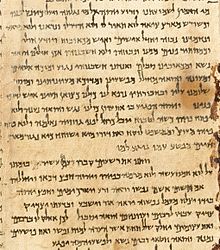
II Timothy 4
Paul knows perfectly well that he decides, speaks, and acts in the presence of the Father and before the Son Who will judge all people (both spiritually alive and spiritually dead at His Second Coming to earth when He sets up His kingdom) [v. 1; cf. 1 Tim. 5:21; 6:13-14].
Therefore, he authoritatively commands Timothy to proclaim the truth of the gospel and the Scriptures at all times, whether the times be convenient or not (“in season and out of season”) [v. 2a].
That preaching should consist of rational argument (“convince”), firm reprimand for wrongdoing (“rebuke”), and strong encouragement to persevere (“exhort”).
Timothy should exercise patience as he preaches messages and utilizes instruction (v. 2b).
[“Patience” is a personal trait; “instruction” is the content of the teaching.]
The apostle warns him of his need to keep preaching sound theology and biblical morality, because people will not want to hear strong, authoritative moral teaching in the future (“the time will come”).
Instead, they will gather entertaining teachers to themselves to present new ideas and theories, and will reject the truth in favor of pleasant, fanciful stories (vv. 3-4).
Using four terse commands, Paul urges Timothy to be serious-minded and alert about everything, bear up under persecution, evangelize, and complete the work God has given him to do (v. 5).
The Judgment Seat
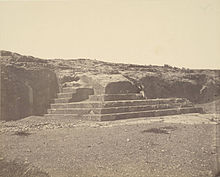
The Bema
Comparing his approaching death to the pouring out of a drink offering—that is, the culmination to dedicating himself as a living sacrifice—(v. 6; cf. Rom. 12:1; Phil. 2:17)—, Paul powerfully asserts his own faithfulness to God’s commission for him.
First, he contends that he has courageously battled the forces of error to the end; second, he has pushed himself through all the pain to the end of the race; and third, he has maintained his belief in the body of truth about Christ and passed it on to the next generation (v. 7).
He is fully convinced that Christ has kept for him and will present to him and to “all who have loved His appearing” “the crown of righteousness” at the bemata (v. 8).
[Is His “appearing” here the same one mentioned in verse one?
Is he referring to the Rapture or the Revelation in these places?]
Apostasy Among the Ranks
view quiz statisticsLuke, Paul's Helper
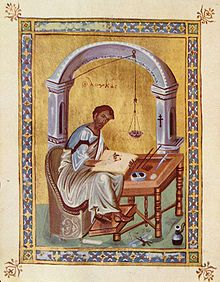
Now Paul returns to his present circumstances in prison, and asks Timothy to visit him soon (v. 9).
The apostle reveals that his once faithful companion, Demas, abandoned him to return to his safe, comfortable life in Thessalonica (v. 10a; cf. Col. 4:14).
Others have left him also, but probably not for the same reason as Demas (v. 10b).
Doctor Luke, however, has stayed by his side; still, Paul wants Timothy to bring the helpful John-Mark with him (v. 11; cf. Acts 13).
He also informs Timothy that he sent Tychicus to Ephesus (v. 12).
In need of a few material objects, Paul also asks his son in the faith to bring his cloak and parchments with him (v. 13).
As for his arrest and trial, Paul remarks that a certain adversary, Alexander the coppersmith, was possibly instrumental in testifying against him; the apostle knows that God will deal with him justly (v. 14).
He admonishes Timothy to watch out for this dangerous fellow (v. 15).
Paul notes that only Christ stayed with and strengthened him as he stood before the tribunal; all others fled.
Still, the apostle does not wish God to judge them for their lack of courage (vv. 16-17a).
[Where was Luke?]
The apostle asserts that the Lord enabled him to preach the word boldly, so that everyone at court heard the gospel.
In addition, God kept the State from condemning him at that hearing (“delivered out of the mouth of the lion”) [v. 17b].
Full of praise for his Lord, the old warrior stands convinced that, whether by life or by death, the Lord would deliver him and bring him safely into His kingdom (v. 18).
The apostle concludes his final epistle by asking Timothy to greet several faithful brethren: Prisca, Aquila, and the household of Onesiphorus (v. 19; cf. Acts 18:2; 2 Tim. 1:16-18).
He also informs him where other disciples reside at the time: Erastus in Corinth, and an ill Trophimus in Miletus (v. 20).
Paul wants Timothy to visit him before the coming winter (v. 21a), and sends greetings from several other believers who have ministered to him (v. 21b).
At last, he asks that the Lord would encourage Timothy’s spirit and confer His grace upon him (v. 22).
Study Questions for 2 Timothy
- Who were greatly instrumental in bringing Timothy to the Lord and nurturing him in his spiritual walk?
- What does the apostle urge young Timothy to do? )
- Which of Paul’s former associates abandoned him?
- Who ministered to the apostle’s need in prison?
- Explain the gospel strategy of multiplying discipleship.
- What three analogies does Paul use to teach Timothy about discipleship?
- What four truths does the apostle encapsulate within another “faithful saying”?
- Which heretics taught a false view of the resurrection?
- To what does Paul compare a local church? Explain his analogy.
- How should Timothy deal with heretics?
- Describe and explain the societal breakdown prophesied for the “last days.”
- Explain how Paul understands the Scriptures’ inspiration.
- Of what aspects should Timothy’s preaching consist?
- To what does Paul compare his approaching death?
- What four commands does the apostle urge upon Timothy?
- What three evidences of his faithfulness to God’s commission does Paul assert?
- Who abandoned Paul in prison, and who is now a valuable servant?
- Who does Paul admonish Timothy to watch out for?
- Which faithful brethren does the apostle remember at the end of his epistle?
- Who stood with Paul before the tribunal?
© 2014 glynch1






